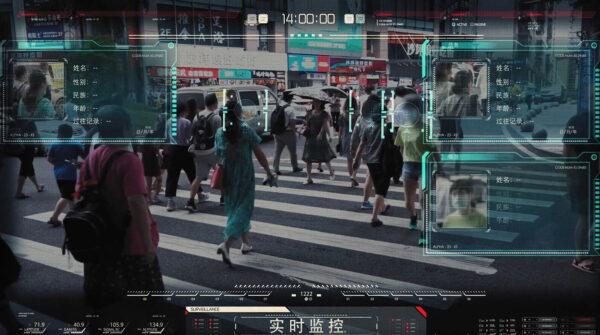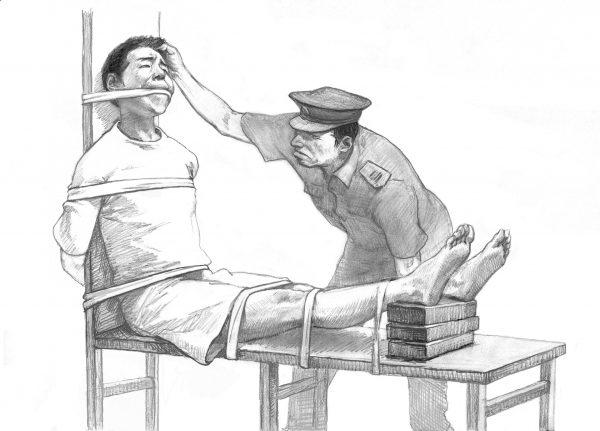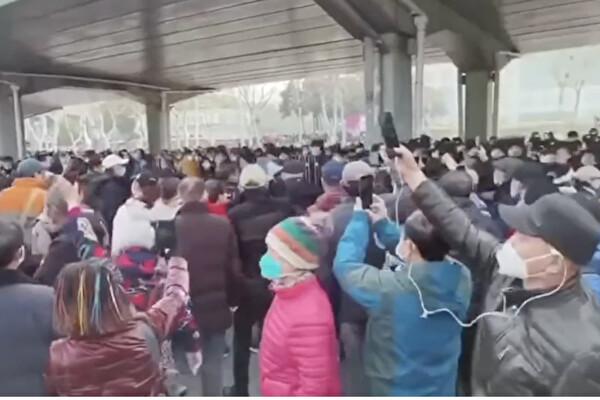Retirees in Wuhan told The Epoch Times that even though police conducted a large-scale effort of warning and coercion to local retirees in the week leading up to it, the Feb. 15 demonstration—organized to protest the regime’s cuts to health benefits for the elderly—still took place.
The Epoch Times spoke with some who were involved in the protests in recent months.
Two Wuhan retirees spoke of their involvement in protests against the communist regime’s unpopular health insurance reforms.
The ‘White Terror’
Mr. Liu is a Wuhan retiree who joined the protest against health insurance reforms on Feb. 8.Just days before the protest on Feb. 15, he said, police began visiting those who were considered to be targets of “stability maintenance.”
Liu said the “white terror”—a term for actions that create a climate of fear—has made it very difficult to resist tyranny.
Mr. Li, also a retiree from Wuhan, said that authorities installed additional surveillance cameras within a 2-kilometer (approximately 1.2 miles) radius between Zhongshan Park and Shouyi Square, the location of the protests.
He said Wuhan mobilized nearly all police forces on Feb. 15. Since the day of the protest, facial recognition technology has allowed police to harass those who were at the scene.

According to Li, the police pulled a friend of his from his apartment and took him to the police station.
He said, “On the 18th, they dragged him to the van and pressed his head down on the floor of the van. They interrogated him for several hours.” The police did not release his friend until, through the efforts of family members in Wuhan and Beijing, a foreign diplomat intervened on his behalf.
Li said that Wuhan authorities are now engaging in an all-out effort to retaliate and punish the participants.
Although some elderly were arrested, Liu said that the Wuhan authorities have focused on arresting young onlookers at the scene. “I don’t know how many people were arrested, but what is certain is that none of the young people who were arrested have been released so far.”
How to deal with it is now up to the authorities to decide, he said. “There [are no] legal formalities for the family members of the arrested young people.”
Recurring Nightmares
The Chinese Communist Party (CCP) retaliated against the white paper movement by arresting many protesters, according to a report by Human Rights Watch.Lin told The Epoch Times on Feb. 14 that he was inspired to get involved in the white paper movement after seeing online videos and photos of protests in Shanghai last year.
Early on Nov. 27, he witnessed the protests at Shanghai’s Wulumuqi Road—a spot where people paid tribute to the victims of the Urumqi fire.
At the scene, he saw how the police dealt with protesters.
“I rode my bike towards the cross section of the Wulumuqi Road; there I saw a man being forced into a police car by four men,” he said. He took out his cell phone to film the scene, but immediately was approached by two men who pointed at him, saying “No filming.” he stopped recording right away and put the phone back into his pocket, he said.
However, after he took a few pictures, six police officers violently attacked him. He said, “I saw others were filming me. I struggled with the police ... I tried to buy them time as much as I could, hoping they [would] record the moment and circulate it on the internet.”
The police threw him inside the police car and pummeled him on his head, he said.
At the police station, he saw four other young protesters around his own age. He also overheard a conversation between the police and the security guard, saying that so many were arrested between the evening of Feb. 26 and the early morning of Feb. 27 that they were transferred to other police stations.
Lin said that the police took his mugshots, his fingerprints, and palm prints. The iris scan failed because the machine malfunctioned. Police tried to collect his blood samples, his signature, and record his voice, but he refused to cooperate.

He said that police hit his head against the concrete wall, and a police officer kicked him so hard that the officer lost his shoe. He experienced the “tiger bench” torture, he said: “It’s very painful, I did not dare to move a bit.”
“I protest against the restriction on my free expression,” Lin told the police.“I asked a police officer why he beat me, and he said, ‘Who’s going to prove that I have beaten you?’”
Lin was not released until the morning of Nov. 28.
The police told him the reason for his arrest was that he was “picking quarrels and provoking trouble,” and he was “summoned verbally.”
Lin said that he argued with the police. He said when a country shows such fear toward its people that an ordinary person can be arrested for passing by on a bicycle, taking a few photos, and filming nearby buildings and street views, it is already hopeless.
He demanded that the police record the physical injury caused to him in the supplementary paperwork. However, the police refused to issue paperwork for his arrest. Only a written summons results in paperwork, Lin was told.
The Uncompromising Young
Lin admitted that he is traumatized by the incident. “A few more seconds in the police station, and I could have totally collapsed. It’s hard to imagine how I have managed to make it through,” he said.Nightmares have followed him since the incident; they awaken him often.
He is deeply worried that the regime may retaliate against him, and that police may come and take him away again.
“I am deeply disappointed with the political, judicial system and level of freedom in China today,” he said.
However, he said, nothing will stop his determination to pursue democracy and freedom. He said, “I think everyone should stand up bravely and create a good atmosphere together to accelerate the collapse of the CCP.”
He emphasized that the Urumqi fire ignited anger that has been pent up for a long time.
When the opportunity arises, Lin said, he hopes to “escape China ASAP.”




